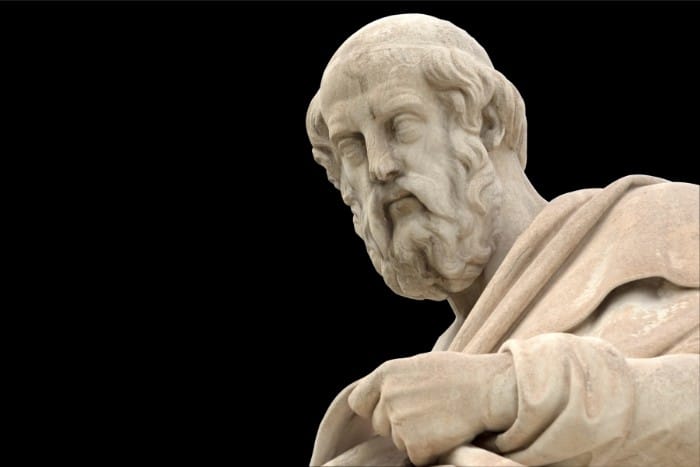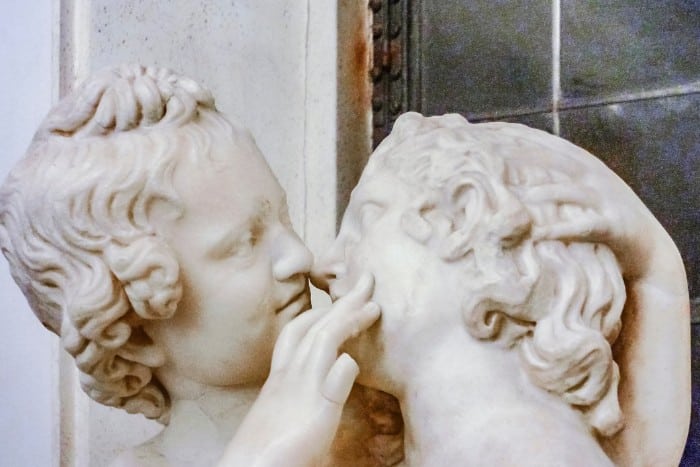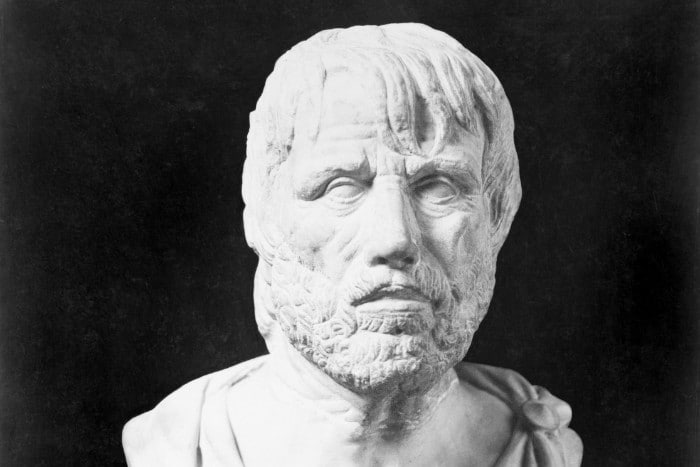If there is anything that hasn’t changed in our universe over the years, it’s love. From the Greeks to the geeks, love has been eternal. The views of love have changed over the years, but the feeling remains, and if there is someone who loves love, it’s the Greeks.
The various philosophies of the Greeks on love included passionate love (eros), fondness and affection (philia), love for god (agape), self-love (philautia), love for family (storge), flirtation (Ludus) and long-lasting love (pragma) among other philosophies.
And so, here are a few thoughts Greek philosophers had about love.
Thoughts of Greek Philosophers On Love
Love has always been an essential topic of discussion for Greek philosophers. Although there are multiple philosophies on love, the three primary and well-discussed philosophies are eros, philia, and agape.
1. Eros
The term ‘Eros’ is usually used to define an intense desire for something, usually referring to sensual desires.
It describes that part of love that points towards heated passion, hence the modern notion of ‘erotic’.
According to philosopher Plato, love for him was about the desire human beings have for the mystic or spiritual beauty of an object.
To put it simply, according to Plato, reciprocity is not an essential factor in this kind of love due to the fact that the desire is simply for the object of affection and not for their company or shared values and beliefs.
Therefore, according to Plato, love is not about physical desire but about the reflection of beauty in the object of affection.
An example of Eros’s love in modern times could be a couple who recently fell in love.

2. Philia
In stark contrast to the passion and yearning of eros, philia is about fondness and affection for the other.
For the Greek philosophers, philia was not simply about friendship but also about loyalty towards your work, family, or your political community.
It is the love people share for their friends or people they work with.
According to Aristotle, philia love is usually motivated to benefit ourselves or the other person.
The modern concepts of ‘friendship’ and ‘Platonic love’ roughly derive their concepts from Aristotle’s notion of philia.
According to his notions, philia love stems from being kind to the other person and not boasting about it.
Aristotle further elaborates on the things we require for a pure friendship- someone who can share our values and ideas, who are patient and admire us just as we admire them.
He further elaborates that philia love cannot blossom if the individuals are “quarrelsome” or aggressive towards each other.
A noteworthy fact about Aristotelian love is the fact that it is ‘elitist’ or ‘perfectionist’.
In Aristotle’s philosophies, he says that those who are inferior to him in terms of wealth, knowledge, etc., must love him without expecting much in return.
He said, ‘In a friendship implying inequality, the love should also be proportional, i.e., the better should be more loved than the love he gives.’
Reciprocation, according to Aristotle, was a necessary aspect of love, regardless of whether it is reciprocated equally.
3. Agape
Agape usually refers to the love an individual and God have for each other.
It draws its elements from both Eros and Philia, where it’s a perfect mixture of fondness and passion without a necessity of reciprocation.
This is an unconditional kind of love wherein there is a general understanding of all humankind despite their flaws and mistakes. It highlights a sense of general respect between humans.
Love for one’s God is often so intense and filled with such desire that it is able to overcome all obstacles that the lover faces along the way.
Aquinas picked up on the Aristotelian theory of friendship and held God in the highest regard and, therefore, most deserving of one’s love, respect and consideration.
This type of love can be shown through actions without expectations of anything in return.
An example of Agape love today could be the love shared between a student and teacher.
Other than these philosophies, there are also many other philosophies on love, some of which include:

4. Storge
Storge refers to the fondness or affection that stems from shared values or experiences, in other words, familiarity. It occurs naturally and is therefore also referred to as ‘natural love’.
It is the unconditional love families have for each other, for example, the undying love parents have for their children.
Unlike other types of love, Storge can be unbalanced and may work in a singular direction. It fosters warmth, commitment, and feelings of closeness.
5. Philautia
Philautia is an ancient Greek concept or philosophy that is used to describe ‘self-love’ or ‘self-interest’. Having this type of love means respecting yourself and holding yourself in high regard.
Having a solid relationship with yourself and being true to your own wants and desires can impact all areas of your life positively. This type of love helps increase your self-confidence and assuredness.
6. Ludus
Ludus love is characterized by playful and free love, which is expressed with flirtation and being forward with one another.
In modern terms, this kind of love can be recognized with the concept of ‘no strings attached’. With this view, love in a Ludic relationship is uncomplicated, casual, and undemanding.
However, there are chances of miscommunication in such a relationship wherein one party might mistake a Ludic relationship for an Eros love. It is important to differentiate between the two.
Like Eros love, Ludic love is also passionate and has a sensual side, but unlike Eros love, Ludic love isn’t about long-term commitment and is instead about being silly with one another.

7. Pragma
Pragma is a long-lasting, consistent and reliable love. According to multiple Greek philosophers, this love takes time to cultivate and can make it through life’s ups and downs.
This kind of love is shared between individuals who are genuinely committed to each other. Examples of Pragma love are the love shared between old friends or the love between an old couple.
8. Cosmic view of love
Similar to earlier thinkers like Empedocles and Lucretius, they had a cosmic view of love. They closely associated love with beauty. However, they also made it a part of their metaphysics and epistemology.
According to them, love was the endpoint of a journey that was undertaken after contemplation and understanding of true beauty.
9. “Friendship gone mad”
According to philosopher Seneca, love came in all different shapes and forms, which he deeply discussed in his works- like love for family, love for one’s country, or even love for one’s own self.
However, it was the relationship and friendship shared with love that interested him the most. According to him, love is ‘friendship gone mad’, which, to some extent, holds true even today.
Friendship is one of the easiest ways for love to bloom between two people.

Conclusion
Love was the ‘end all be all’ for multiple Greek philosophers as they put love high on a pedestal. Even today, love is one of the significant reasons why humans are still able to survive.
Philosophies by greats over the years hold true even today and teach us the importance of love for one’s survival. So, fall in love as much as you want. The blessings of the Greeks are with you!
